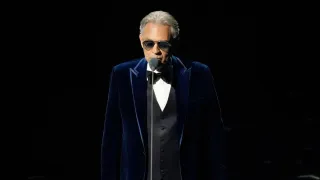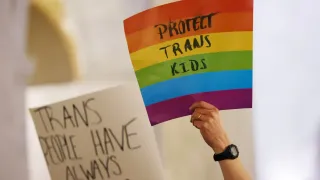June 5, 2024
Green Investing: What Is It and When Do You Draw the Line?
READ TIME: 4 MIN.
Investments are great, especially if you want to put your money to use and increase your savings. With many exciting and profitable companies out there, you can invest your spare cash and earn passive income. But that's not your biggest concern, right?
You're an environmentally conscious investor. And you're afraid that these companies do not align with your eco-conscious values. Well, we've got some great news for you. It is possible to go green in this field as well! Here, you'll learn more about green investing and everything it entails, including the criteria used. With that at your fingertips, you'll know where to draw the line when investing. Are you excited already? Let's dive in!
Understanding Green Investing
Green investing is the act of putting your money into a company that has eco-friendly practices. Such companies care about the environment when operating every single day. They conserve natural resources and reduce pollution. And as they do that, they ensure that their investors generate returns.
As an investor with a sustainable finance mindset, you can practice green investing in many ways. For instance, you can buy green mutual funds and green bonds or hold stock in an eco-friendly company. By doing that, you'll be respecting your eco values.
Environmentally Responsible Investments
If you want to make your money work for something you care about, learn more about the below investments. They are socially responsible and will allow you to achieve your eco values.
1. Green Individual stocks
Green stocks are associated with companies that engage in eco-friendly products or practices. For instance, they renew energy, control pollution, and reduce waste. So, as an investor, you can look for companies that offer such solutions.
And when you improve the environment by investing in such stocks, you'll reap great financial rewards in no time. To get started, check the risks of each company and pick one that suits you best.
2. Green ETFs
Green exchange-traded funds (ETFs) also exhibit positive ESG traits. They offer a low-cost approach to sustainable investing, which is great for your pocket. And in case of market downfall, green ETFs are highly volatile. Hence, going green with ETFs is a done deal for any investor who cares about the environment.
3. Green Bonds
With green bonds, you'll have the chance to invest in climate solutions. Over the last decade, green bonds have been a great asset to the environment. And thanks to their growth rate, many investors find them attractive.
If you're interested in a platform that offers excellent practices, green bonds might be for you. They will help you achieve your future pure wealth and maintain your eco values.
4. Green Mutual Funds
Another sustainable investment is green mutual funds. They offer investors a convenient way to invest in a wide range of responsible assets. While you can find these funds in specific industries, they are perfect for making the economy greener.
Some of the sectors you can look into include renewable energy and clean technology. One of the reasons you should choose companies in such sectors is that they promote sustainability. And to make things even better, they enhance your long-term returns.
What Criteria does Green Investing use?
Green investing is guided by ESG criteria. Never heard of it before? The full meaning of ESG is Environmental, social, and governance. With the use of these criteria, each component helps you know when to draw the line before investing. For a better understanding, let us look into each component. They will help you identify a company that is eco-minded. Remember, not all companies are.
Environmental
The ESG criteria assess the company's environmental risks and possible damage to the ecosystem. Some of these risks involve water security, climate change, and health hazards. And to be on the safe side, companies work hard to get high ESG ratings.
For instance, they make an effort to reduce carbon emissions. Also, they address water scarcity and come up with ways to mitigate wastage.
Social
Social ESG criteria evaluate the interaction and engagement of a company with people. Its main focus is to reduce inequalities and uphold human rights. Also, it ensures that both workers and the communities are in a safe and healthy environment. A company that meets the social criteria is fair to everybody and has the best customer service.
If you want to invest in a sustainable and socially responsible company, try earning apps. They are eco-friendly and allow you to be more in control of your actions. And through that, you reduce waste, save more, and make the planet a better place.
Governance
Governance is a crucial component of the ESG criteria. It focuses on the transparency of a company and its entire ethical backbone. This factor manages all the conflicts of interest and ensures the public is in the know.
Also, it addresses both ethical and legal considerations. To pass this criterion, an organization should have a sense of fairness. That means it fights against illicit activities like bribery.
Summary
When investing with the planet in mind, that is something extra. It shows that you're willing to contribute to a more sustainable future. As you generate competitive returns, you'll be doing it uniquely. You'll be creating a positive impact on the environment. So, you did not go wrong navigating the world of green investing. It is worth it and you can now invest knowing what to look for in a company.






